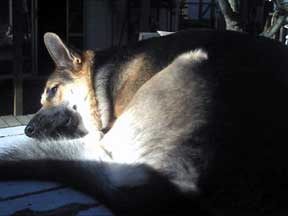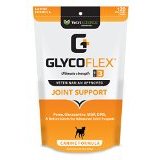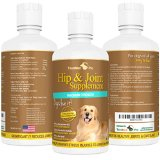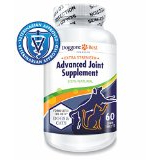Meeting the Needs of Your Older German Shepherds
Depending on the size of your older German Shepherds you may have noticed it is a bit slower when chasing a ball, struggles a bit more getting up the first thing in the morning or loses its breath a bit quicker.
The aging process wears down your GSD in much the same way it does us, but at a much faster pace. While most human beings live to be 70+, a dog, depending on many factors, often lives for 12 years or less.
Many dogs begin showing health/age related problems at different ages. This is related in a large way to the size and physical shape of the dog in general, not to mention all the heredity related issues.
The best way to judge an animals health is based on the individual animal and the changes in its own particular behavior and health. The best thing you can do for an older animal is to keep it healthy and not over or under weight. Also, keep your older German Shepherds exercised, but be careful not to overdo it.
The needs of an older pet are often very different from dog to dog so it is very important to maintain clear communication with your veterinarian concerning your pets health problems and changes which are all included in this advancing age process.
There are certain things you should look for in your dog as you do your grooming rituals. Below find a list of several things to watch for in all older pets.

Lumps/bumps: Check your older German Shepherds for these as you groom it. Masses are common and in most cases are benign but if you find a new one of these, consult your vet to have it checked as cancer is quite common in dogs, particularly those who have not been spayed or neutered early in life.
Mobility: Arthritis is common in the older German Shepherds but other problems such as degenerative joint disease may be at the root of that stiffness in the mornings. Anti-inflammatory drugs or steroids are often prescribed to aid in this problem. Common aspirin can also help but is often used as a last resort due to side effects.
Teeth/gums: Check your dog and see what is normal for it as "normal" may be different from one dog to another. Changes in gum color can indicate potential problems. Foul breath can be another warning sign as well as loss of weight, pawing at the mouth, excessive salivation, swallowing difficulty or other signs of pain.
Eyes: If you notice a change in the your GSD's eyes, such as a bluish-gray tint, consult with your vet to see exactly what is the cause and what treatment is involved. Cataracts, genetic diseases and other causes are often the root of sight loss in older German Shepherds.
Changes in thirst and elimination: Changes such as increased thirst or having to "go" more often are indications of potential kidney or bladder disease or even diabetes. Check with your vet asap.
Heart disease: Changes in sleeping habits or coughing through the night can be indicators of canine heart disease. Frequent checkups can often prevent these types of diseases. Consult your vet with any questions that you may have concerning your older German Shepherds.
Body/Coat Condition: Keeping your dog in shape cuts down on a lot of potential health problems - heart disease, etc. If your dogs coat becomes overly flaky or if there is excessive hair loss, your German Shepherd may have a hormonal problem which can be diagnosed through a simple blood test.
Natural Products to Ease the Pain of Dog Arthritis
Return from Older German Shepherds to Arthritis in the GSD
Dogs, the foremost snobs in creation, are quick to notice the difference between a well-clad and a disreputable stranger." - Albert Payson Terhune 'The Coming of Lad'
Sign up for promotions, news, discounts, and the chance to win prizes for you and your German Shepherd




